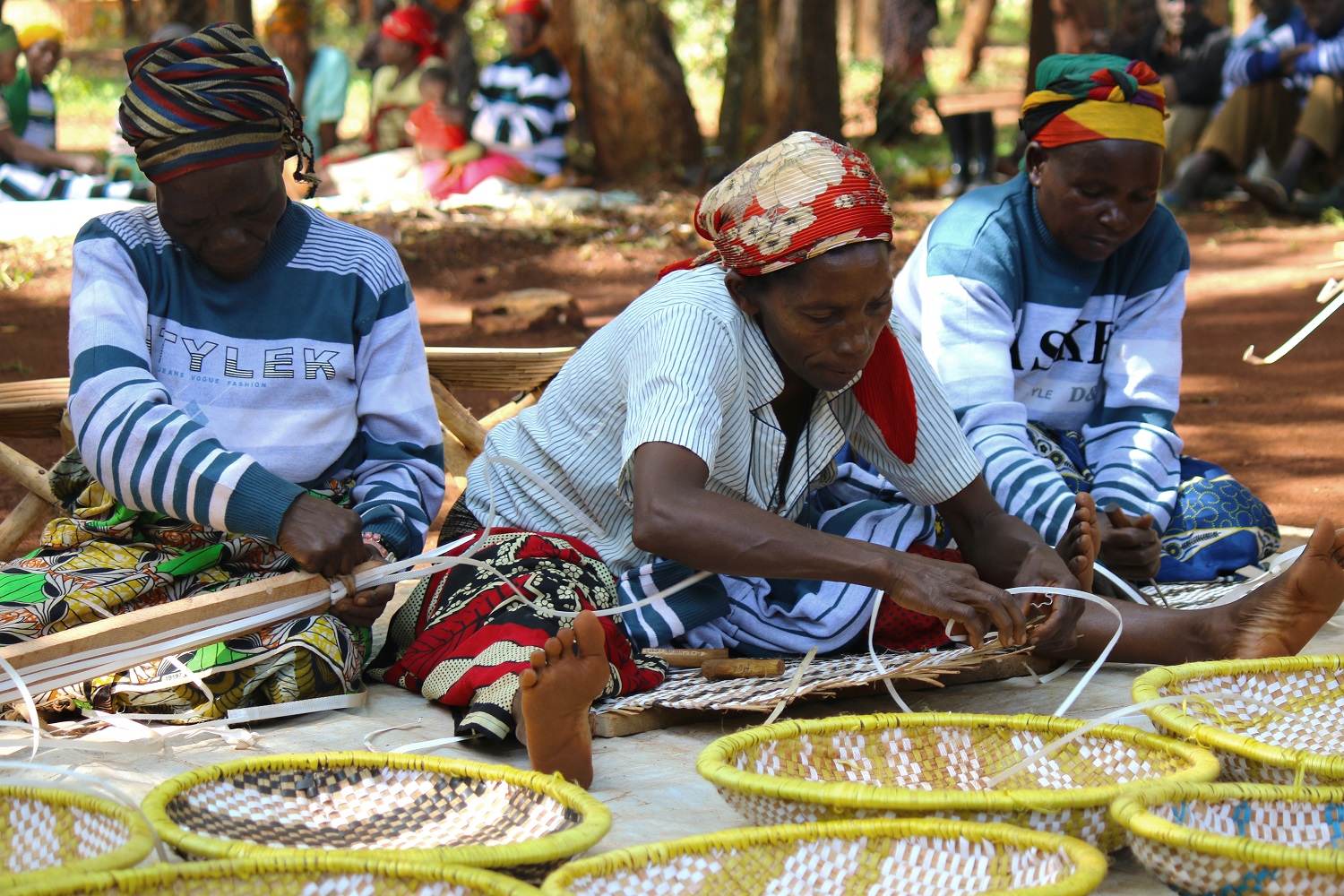
The past few years have seen several conflicts around the world driving people from their homes in search of safety and security in other countries. Many find themselves in refugee camps where governments and humanitarian agencies provide vital support.
Much of this is comes in the form of food, goods, healthcare and protection – meeting people’s immediate and urgent needs. However, as humanitarian emergencies become more protracted, dragging on for year after year, we need to see responses with a greater development focus to boost the self-reliance and autonomy of refugees in the long-term.
Enabling Burundi’s refugees to become self-reliant
Here in Tanzania, more than 270,000 Burundian refugees live in three camps in the western part of the country close to the Burundi border.
We at HelpAge International support people who have specific needs in two of the camps – Mtendeli and Nduta. This includes older men and women, people with disabilities, single women who have children and people living with chronic health conditions. We offer a variety of services to promote their protection, boost their physical and mental health, and improve their access to essential humanitarian services.
This part of our refugee response may seem quite similar to most, but one aspect of our programme has a different approach. We help refugees to apply their existing skills and acquire new skills that enable them to earn an income in the camp, better integrate them into the community and reduce dependency on relief assistance.
In a recent visit to the camps, I witnessed many of the refugees we support busy plying their trade. Men were building furniture such as chairs, tables and shelves, while older women were weaving baskets.
I saw single mothers who have been trained in tailoring busy at work on the sewing machines we provide, making clothes they can sell in the market to both host and refugee communities. These women are supported by other refugees in their community who provide child-minding services to enable them to work while their children are kept safe.
“When we are actively involved in group activities and spend the day meaningfully we go back to our shelters feeling satisfied, and it helps us forget the hardships we endured during the past years,” said a refugee who we are supporting to build furniture.
“With the money we raise from the sale of items we buy some items that are not provided in the camps, such as rice, vegetables and medication.”
What is important about this work is that it continues to have an impact long after the refugees have moved out of the camps, or if, for whatever reason, our response programme ceases to exist. These skills do not disappear – they can continue to be someone’s livelihood long into the future.
New framework to promote development approaches in the camps
This year’s World Refugee Day comes soon after the adoption of the UN’s Comprehensive Refugee Response Framework (CRRF), laid out by the 2016 New York Declaration.
CRRF calls on host countries to offer greater support to refugees, to integrate them into their communities so they can access education and labour markets, benefit from national development plans and contribute to the economy. By bringing together government authorities, humanitarian actors, development partners, the private sector, international financial institutions and academics, Tanzania can harness CRRF to strengthen its refugee response.
This approach creates an opportunity to demonstrate how refugees – when given the right tools and support – can take care of their own needs. When refugees receive an education or are allowed to work so they can support themselves and their families, they become important contributors to the communities that host them. It requires a different approach by the host country and donors, but the impacts can be significant and more sustainable.
As the world marks this day, it is important to support efforts that ensure refugee children receive an education, that refugee families have somewhere safe to live, and every refugee can work or learn new skills to support their families. Promoting self-reliance decreases dependency and allows refugees to exercise their rights and paves the way for integration into the local economy.
This is a day we stand in solidarity with both refugees and communities that host them. No one becomes a refugee voluntarily. Those who leave their homes do so because of fear for their safety.
Refugees are ordinary people. They are mothers, fathers, grandparents, sisters, brothers and children. They have the same hopes and life aspirations as all of us. Refugees can be resourceful. They bring with them diverse skills, talents and professional strengths with which they can contribute positively to their host countries if they are granted the opportunity.
Given the choice, refugees don’t want to be a burden. They want the dignity that comes with being able to support their own families and the wider society. Integrating refugee response with local development plans and strategies is a sure way of demonstrating solidarity to both refugees and host communities. We stand with refugees!
Find out more about our Burundi refugee response in Tanzania.
